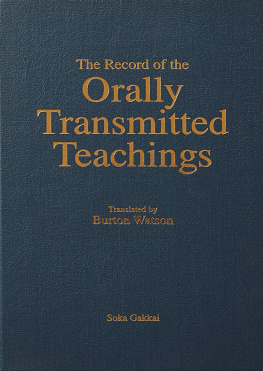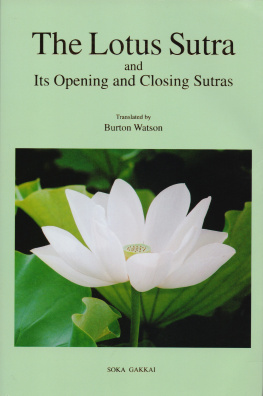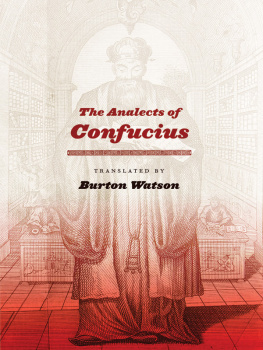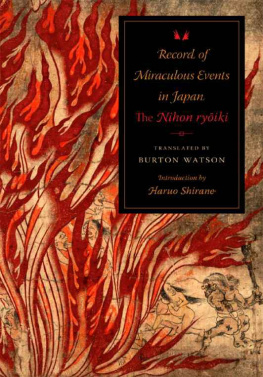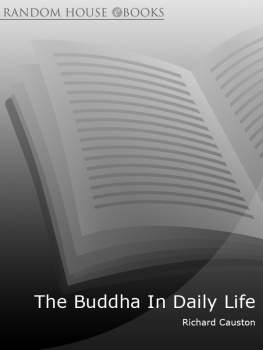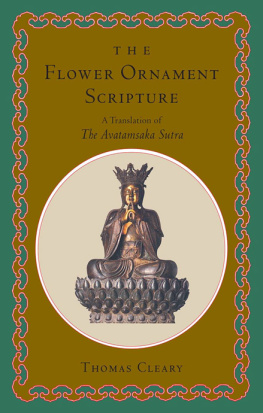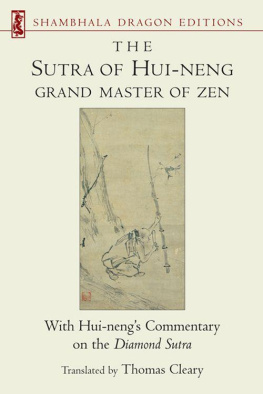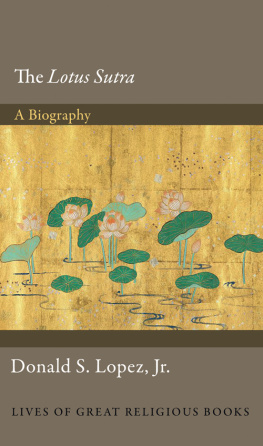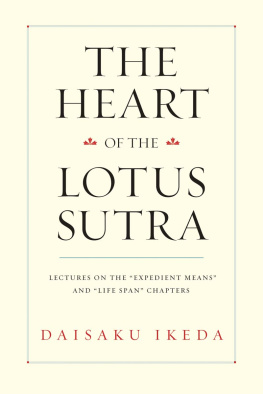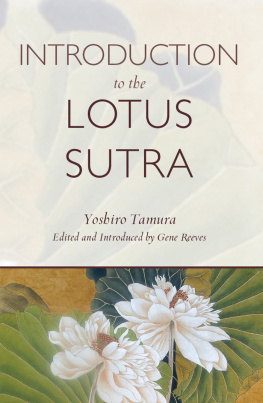Burton Watson - The Record of Orally Transmitted Teachings
Here you can read online Burton Watson - The Record of Orally Transmitted Teachings full text of the book (entire story) in english for free. Download pdf and epub, get meaning, cover and reviews about this ebook. year: 2004, publisher: Soka Gakkai, genre: Religion. Description of the work, (preface) as well as reviews are available. Best literature library LitArk.com created for fans of good reading and offers a wide selection of genres:
Romance novel
Science fiction
Adventure
Detective
Science
History
Home and family
Prose
Art
Politics
Computer
Non-fiction
Religion
Business
Children
Humor
Choose a favorite category and find really read worthwhile books. Enjoy immersion in the world of imagination, feel the emotions of the characters or learn something new for yourself, make an fascinating discovery.
- Book:The Record of Orally Transmitted Teachings
- Author:
- Publisher:Soka Gakkai
- Genre:
- Year:2004
- Rating:3 / 5
- Favourites:Add to favourites
- Your mark:
- 60
- 1
- 2
- 3
- 4
- 5
The Record of Orally Transmitted Teachings: summary, description and annotation
We offer to read an annotation, description, summary or preface (depends on what the author of the book "The Record of Orally Transmitted Teachings" wrote himself). If you haven't found the necessary information about the book — write in the comments, we will try to find it.
The Record of Orally Transmitted Teachings — read online for free the complete book (whole text) full work
Below is the text of the book, divided by pages. System saving the place of the last page read, allows you to conveniently read the book "The Record of Orally Transmitted Teachings" online for free, without having to search again every time where you left off. Put a bookmark, and you can go to the page where you finished reading at any time.
Font size:
Interval:
Bookmark:
Burton Watson
2004
I view with the greatest pleasure the publication of this English translation of the Ongi kuden, or The Record of the Orally Transmitted Teachings, by Dr. Burton Watson, a translator of world renown. For it will introduce to the world at large the essence of East Asian Buddhism.
Dr. Watson is widely known for his deep understanding of Chinese literature and his translations of Ssu-ma Chiens Records of the Historian and of Chinese poetry. We first met in 1973. I had for some time thought of him as the most suitable person to undertake a translation of the Lotus Sutra, and I expressed the hope that he would one day gratify us with a translation done from Kumrajvas Chinese version of the text. I was of course aware that there were already a number of English translations of the sutra. My hope, however, was that he would produce a translation marked by stylistic beauty, one that would do justice to the literary qualities of the text and at the same time be easily understood by readers not already familiar with Buddhism. Dr. Watson, having agreed to my proposal, fulfilled his promise twenty years later with the publication of his translation of the Lotus Sutra. It has proved a major event in the history of world Buddhism, a powerful beacon to light the future of humankind.
In 1992, the year before Dr. Watsons translation of the Lotus Sutra appeared, I met with him again. We talked about the Ongi kuden, which embodies Nichirens comments on the Lotus Sutra. Dr. Watson, who by this time had completed his translation of the sutra itself, expressed a deep interest in the manner in which Nichiren interpreted it. Aware of the many problems involved, he agreed nevertheless to undertake an English translation of the Ongi kuden as well. Now, a fitting adornment to his long career as a translator, his translation of that text is being published. I am confident that it will open up to the world the profound philosophical teachings of Buddhism and act as a joyous revelation to all humankind.
Numerous persons throughout the world who seek a deeper understanding of Buddhism have heard of the Ongi kuden, but only a few have had a glimpse of its contents. Many have expressed a strong desire to learn more about the text and have long wished for an English translation.
On the occasion of the publication of this translation, I would like here to say a brief word about my own understanding of the Ongi kuden .
As I recall, it was August of 1962 when I began a series of lectures on the Ongi kuden designed for college-level students who were members of the Soka Gakkai. I wanted to train future leaders of the movement and to make the profound philosophy of Nichiren accessible in contemporary terms. It was a time of nuclear armament, an age engulfed in hatred and mistrust, and I felt there was a deep need to replace these with a humanism based on mutual trust and harmony.
Generally speaking, Buddhism is viewed as an exploration of the inner world of the individual, focusing mainly upon meditation and the observance of religious precepts or rules. And in fact it has largely ignored the question of how these inner concerns of the individual can be applied to the outer world of society as a whole. Therefore few people perceive Buddhism as a philosophy for the attainment of world peace.
Nichiren, however, as he demonstrated in his famous work On Establishing the Correct Teaching for the Peace of the Land, posited a fundamental truth or principle that a revolution beginning within the inner being of the individual can then bring about a similar revolution in the world at large.
Basing himself upon the Lotus Sutra, Nichiren did not look to some external being such as a Buddha or the gods as the source of this revolution in the individual and in society. Instead he perceived a Law or truth that permeates both the inner being of the individual and the life force of the universe as a whole, and sought to open up and disseminate an understanding of that truth. But this concept far transcended the ordinary thinking of the age in which he lived, and as a result, as the Lotus Sutra itself had predicted, he could not fail but encounter numerous grave difficulties. And indeed, the very fact that he endured such difficulties in the course of propagating the sutra was proof of the correctness of its teachings, and at the same time evidence that he was, as it were, reading the Lotus Sutra with his whole being, that he was a true votary of the Lotus Sutra.
In later years, when Nichiren retired to Mount Minobu, he delivered a series of lectures on the Lotus Sutra for the instruction of his disciples. He revealed the hidden meanings of the sutra passages that were so familiar to him, the meanings that earlier authorities on the sutra such as the Great Teacher Tien-tai and the Great Teacher Miao-lo had not fully brought to light. Nichiren, utilizing the work of these earlier commentators, in his own lectures on the sutra proceeded to make clear these hidden meanings.
His lectures were recorded and compiled by Nikk, one of his closest disciples. Nichiren gave his approval to the work, whose completion is recorded as the first day of the first month of the first year of the Kan era, which corresponds to the year 1278. It later came to be known as the Ongi kuden, or The Record of the Orally Transmitted Teachings .
The charge is often made that the Lotus Sutra, though abounding in highly vivid similes and parables, lacks philosophical content. If we look only at its surface meaning, we may perhaps agree with such an opinion. But Buddhism customarily applies three approaches in interpreting its writings, examining them first from the standpoint of the words of the text, then from that of the ideas or meaning implied by the words, and finally, from that of the underlying purport or purpose of the work.
Chinese authorities on the Lotus Sutra such as Tien-tai and Miao-lo, by pondering the words of the sutra, had derived from them certain subtle ideas or doctrines, which they described in terms such as the mutual possession of the Ten Worlds, three thousand realms in a single moment of life, the attainment of Buddhahood in the remote past, opening the near and revealing the distant, or the replacement of the three vehicles with the one vehicle. But their commentaries had as yet not brought to light the underlying purpose or import of the Lotus Sutra.
Nichiren in his lectures on the sutra revealed that the purport or heart of the work is Nam-myoho-renge-kyo, and from that standpoint he proceeded to give his explication of the sutra as a whole. This may be termed an interpretation based on his observation of the mind, or the inner truth, implicit in the text, and it constitutes a philosophy of profound depth. Nichiren in effect infused new life into the Lotus Sutra.
The Record of the Orally Transmitted Teachings begins with an explication of the term Nam-myoho-renge-kyo. It then proceeds to cite key passages in each of the twenty-eight chapters of the Lotus Sutra, in some cases first introducing quotations from the commentaries of Tien-tai or Miao-lo on these passages, in other cases proceeding directly to Nichirens interpretation, which, as mentioned earlier, is based upon his observation of the mind. The work concludes with commentary on key passages from two short sutras, the Immeasurable Meanings Sutra and the Universal Worthy Sutra, that have traditionally been regarded as prologue and epilogue, respectively, to the Lotus Sutra. In all, Orally Transmitted Teachings contains commentary on a total of 231 passages. Furthermore, there are two additional sections.
What is the basic philosophical outlook of Orally Transmitted Teachings? Various interpretations are possible, but my view is that ultimately it resides in the concept of the dignity of the human being and the dignity of life. In specific terms, it is the belief that ordinary people are capable of attaining Buddhahood, that ordinary people are in fact Buddhas.
Font size:
Interval:
Bookmark:
Similar books «The Record of Orally Transmitted Teachings»
Look at similar books to The Record of Orally Transmitted Teachings. We have selected literature similar in name and meaning in the hope of providing readers with more options to find new, interesting, not yet read works.
Discussion, reviews of the book The Record of Orally Transmitted Teachings and just readers' own opinions. Leave your comments, write what you think about the work, its meaning or the main characters. Specify what exactly you liked and what you didn't like, and why you think so.

